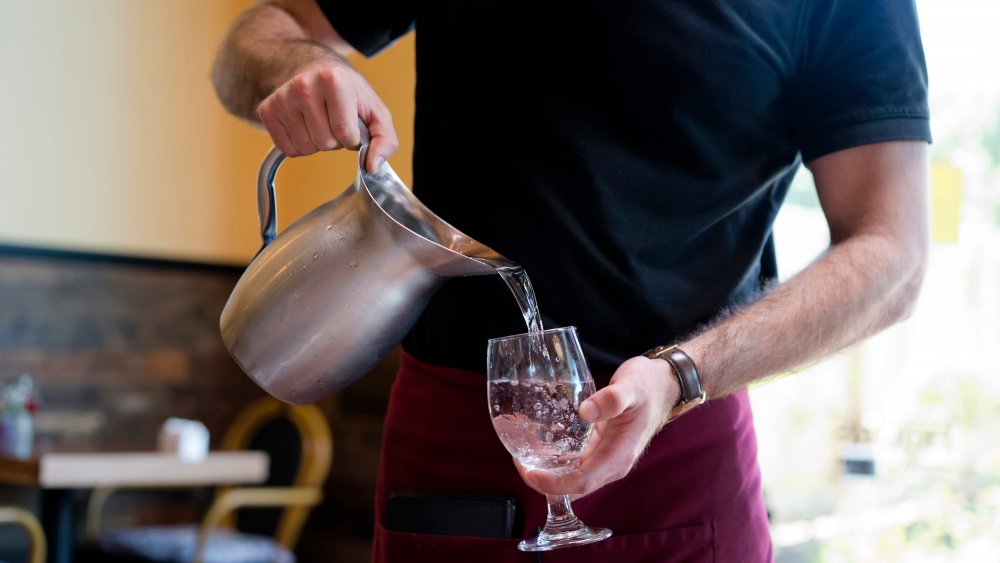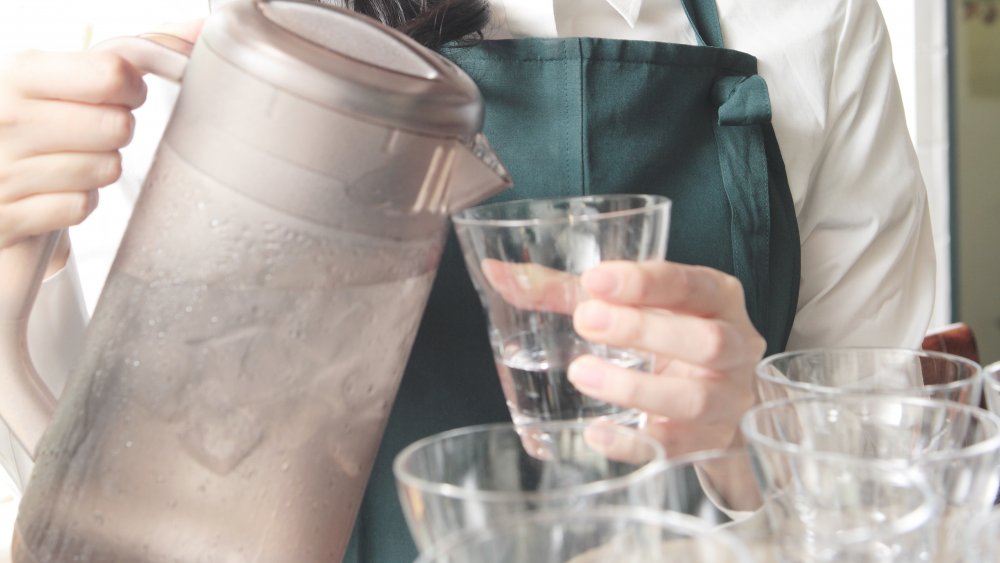You Should Never Drink The Water At A Restaurant. Here's Why
When you first sit down at a restaurant, is there anything more welcoming than a cool glass of water, a lemon wedge perched daintily on the rim? Unfortunately, downing that goblet of restaurant tap water may mean you're bringing home a lot more than a to-go box of your leftover fettuccine. An investigation in 2013 by The Mail on Sunday found that restaurant water can play host to millions of unwanted guests, ranging from germs to life-threatening bacteria; the ice cubes alone can contain more bacteria than a toilet bowl (via the Daily Mail).
Ingesting this drinking water may lead to you spending more time than you'd like upon the porcelain throne — particularly if the restaurant gets its drinking water straight from the soda fountain. A 2010 U.S. Environmental Protection Agency (EPA) study found fecal contamination in nearly half of the Roanoke, Virginia, restaurant soda fountains it inspected (via CNN), and another study in 2018 found plenty of bacteria and mold in soda fountains. But hey, maybe your favorite bistro or cafe sources their water straight from the sink tap, anyway. Even if the restaurant takes extra care to ensure your drinking water is safe, here's why you still might want to consider a strict B.Y.O.B. policy when it comes to your water.
All the reasons you might want to avoid restaurant water
As you put your mouth on the rim of the glass to take a nice long sip of water, ask yourself the question: Do you know where your server's hands have been? Restaurants train servers to handle glassware at the stem, not on the rim, and, of course, to observe proper hygiene. But to err is human, especially when it's a busy lunch crowd. ABC News' undercover test of 10 restaurants in three states found wait staff gripping glasses right where we drink, and one sample taken found multiple strains of bacteria on the rim.
Another reason to avoid water in restaurants? That pretty lemon garnish hides an ugly secret: bacteria. Lots of it. A study in the Journal for Environmental Health revealed that almost 70 percent of lemon wedges tested positive for microbial growth. "Restaurant patrons should be aware that lemon slices added to beverages may include potentially pathogenic microbes," concluded the study's authors.
Lastly, location matters. We might be especially tempted to drink the restaurant water while traveling, when we're tired and parched from a long day of sightseeing, but not all local tap water is ideal to imbibe. Check out the EPA website to find out if the tap water where you live — or where you're visiting — is safe to drink. Even if it gets a clean bill of health, bringing a reusable water flask might be the smartest and safest way to go.

